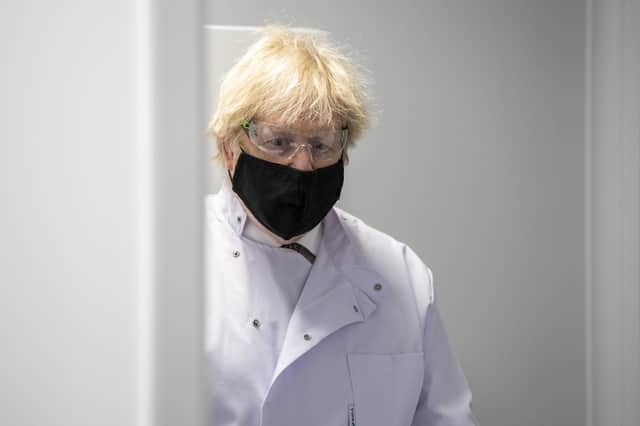Analysis: What Boris Johnson is afraid to say on Universal Credit


The Prime Minister told Tory MPs to abstain, and with the vote non-binding, nothing has changed. He did so claiming voting against would see Labour incite the levels of abuse towards politicians seen in America.
Challenged on this on Monday, Downing Street press secretary Allegra Stratton insisted Mr Johnson didn’t mean like events in the Capitol. Much like his comments on devolution, once again the PM is caught saying something before his team insists he didn’t mean it.
Advertisement
Hide AdAdvertisement
Hide AdThe PM enjoys an 80-seat majority. If he wanted to extend Universal Credit, he could simply do so. If he doesn’t, he has the political capital and numbers to make that argument.
Instead, the PM’s response was to urge the 4.6 million households on Universal Credit to wait and see, with another financial update expected in March.
For six million families who will be affected by the cut, the uncertainty does not help them know how much they will be able to eat in two months.
A report by the Resolution Foundation warned the cut would see the incomes of low-income families fall more than by 4 per cent and drive up relative poverty from 21 per cent to 23 per cent by 2024/25.
They also claimed it would drive a further 820,000 children into poverty. This all comes after the UK Government cut the foreign aid budget.
This is not a culture war issue, these are real people’s lives wondering how they will get by.
Through this whole debate, the UK Government has failed to make an argument against extending Universal Credit. Privately MPs worry about the cost, believing it could be spent better elsewhere, but few are willing to come out and say so.
We do at least know of opposition from Chancellor Rishi Sunak.
Advertisement
Hide AdAdvertisement
Hide AdHe told colleagues: “It would cost £6bn — that’s the equivalent of putting 1p on income tax and adding 5p a litre on fuel duty. Hopefully this will help focus minds among Conservative colleagues on what we value most.”
Mr Sunak is privately telling his colleagues to prioritise saving money over boosting support, a view he has again not shared with the public. His is the argument Mr Johnson is too scared to say.
.
If you haven't already, please consider supporting our trusted, fact-checked journalism by taking out a digital subscription.
Comments
Want to join the conversation? Please or to comment on this article.
